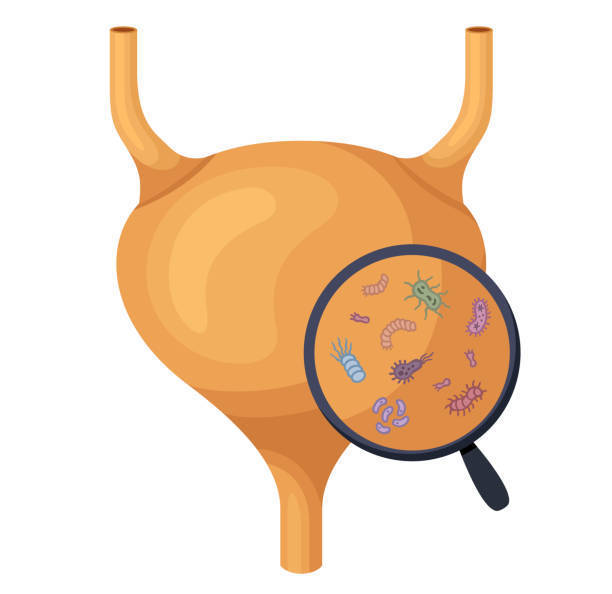
Welcome to Tulsi Wellness Club in San Diego, where we are dedicated to providing you with comprehensive wellness insights and holistic care. One question that often arises is whether a bladder infection can cause bloating. If you’ve been experiencing bloating along with symptoms of a bladder infection, understanding the connection between these conditions can help you find relief and improve your overall well-being. Let’s delve into how a bladder infection might impact your digestive system and explore strategies to address both issues effectively.
What is a Bladder Infection?
A bladder infection, also known as cystitis, is a common type of urinary tract infection (UTI) that affects the bladder. It is usually caused by bacteria entering the urinary tract and multiplying in the bladder. Common symptoms include:
- Frequent and urgent need to urinate
- Burning sensation during urination
- Cloudy or strong-smelling urine
- Pelvic or lower abdominal pain
While bladder infections primarily affect the urinary system, they can sometimes have effects on other parts of the body, including the digestive system.
Understanding Bloating
Bloating is characterized by a feeling of fullness, swelling, or distension in the abdominal area. It can result from various factors, such as digestive disturbances, hormonal imbalances, and fluid retention. Although bloating is not typically associated with bladder infections, it can sometimes occur due to related or overlapping symptoms.
How a Bladder Infection Might Cause Bloating
While not a direct symptom of a bladder infection, there are several ways in which a bladder infection might contribute to or exacerbate feelings of bloating:
-
Referred Pain and Discomfort: The discomfort from a bladder infection can sometimes radiate to the lower abdomen or pelvis, which may be perceived as bloating. The sensation of fullness or pressure in the lower abdominal area can mimic bloating.
-
Antibiotics and Digestive Disruption: Treatment for a bladder infection often involves antibiotics. These medications can disrupt the balance of gut bacteria, potentially leading to digestive issues such as bloating, gas, or diarrhea.
-
Increased Fluid Intake: To help flush out the infection, it's recommended to drink plenty of fluids. While this is beneficial for treating the infection, the increased fluid intake can sometimes lead to temporary bloating as your body processes the additional liquid.
-
Coexisting Conditions: In some cases, a bladder infection might occur alongside other gastrointestinal issues, such as irritable bowel syndrome (IBS) or constipation, which can contribute to feelings of bloating.
Managing Bloating When You Have a Bladder Infection
If you're experiencing bloating alongside a bladder infection, here are some strategies to help alleviate symptoms and support your recovery:
-
Stay Hydrated: Continue drinking plenty of water to help flush out the infection and support your digestive system. Proper hydration can also help reduce the sensation of bloating.
-
Use Probiotics: Consider incorporating probiotic-rich foods or supplements into your diet to help restore the balance of gut bacteria disrupted by antibiotics. Probiotics can support digestive health and reduce bloating.
-
Monitor Your Diet: Pay attention to your diet and avoid foods that may exacerbate bloating, such as carbonated beverages, high-sodium foods, and excessive sugar. Opt for a balanced diet with plenty of fiber to support digestive health.
-
Practice Stress Management: Stress can impact both urinary and digestive health. Engage in relaxation techniques such as meditation, yoga, or deep breathing exercises to help manage stress and improve overall well-being.
-
Consult Your Healthcare Provider: If you have persistent bloating or other symptoms, consult with your healthcare provider. They can help determine whether the bloating is related to the bladder infection or if there’s another underlying condition that needs to be addressed.
When to Seek Professional Help
While occasional bloating can be a minor issue, persistent or severe symptoms should be evaluated by a healthcare professional. A thorough assessment can help identify any underlying issues and ensure you receive appropriate treatment.
At Tulsi Wellness Club, we offer personalized consultations and holistic care to support your health journey. If you’re dealing with a bladder infection and experiencing bloating or other symptoms, contact us for guidance and support tailored to your needs.
Conclusion
Although bloating is not a typical symptom of a bladder infection, it can occur due to related factors such as discomfort, antibiotic use, or increased fluid intake. By understanding these connections and implementing strategies to manage both conditions, you can enhance your comfort and well-being. For more personalized advice and support, reach out to Tulsi Wellness Club in San Diego.
Dr. Natasha MacLeay
Contact Me



